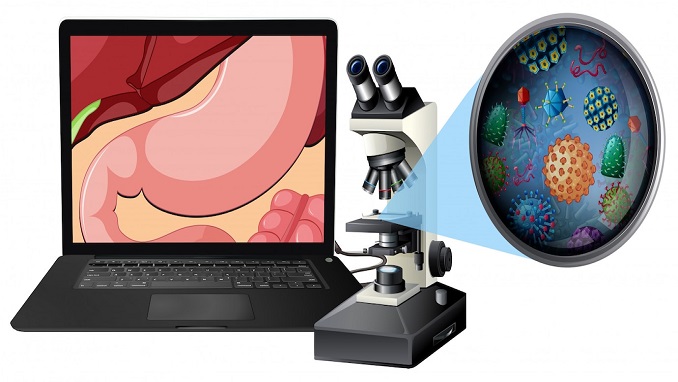The gut bacteria that regulate the body’s biological clock could help people “battle sleep disorders, combat jet lag, fight off foodborne illness and can even improve chemotherapy outcomes,” researchers at the University of Virginia School of Medicine found.
The research team led by Dr. Sean Moore and Dr. Jason Papin established in their study that microbes naturally living in our gut “direct the timing of daily activities of the cells lining our intestines” that are essential to good health, UVA’s article points out.
The findings were published in the journal Gastroenterology on Saturday.
As the study demonstrated, gut bacteria – specifically the bacteria E. plexicaudatum, Pseudoflavonifactor, and P. goldsteinii – manufacture as byproducts short-chain fatty acids to regulate our intestinal cells.
These fatty acids are a critical timekeeper for important biological processes since they, as the study describes, “switch certain mammalian genes on and off as needed over 24-hour periods” i.e. reset the internal clock that determines when intestines cells perform their necessary functions.
Scientists have demonstrated the guts’ direct influence on the circadian rhythm of intestinal cells using three-dimensional gut organoids – essentially, miniature intestines in a dish – and advanced computer modeling to identify which metabolites may be most important for the circadian rhythm.
As Dr. Moore, a pediatric gastroenterologist at UVA Children’s explained, researchers established “a chain of causality between specific microbes, their metabolites, and their effects on the clock.” This insight came after narrowing down “a daunting list of hundreds of bacterial metabolites to a short list of three of four prime suspects responsible for the dramatic resetting of the intestinal clock” they’ve observed when cells were exposed to metabolites from certain bacteria.
“The future is very bright in biomedical research as we take advantage of the data science and computational methods being developed,” emphasized Dr. Papin, whose expertise in computer modeling allowed the researchers to identify which metabolites may be most important for the circadian rhythm.
Disruptions of these circadian rhythms of intestinal cells “have been linked to obesity, ulcers, diarrhea, inflammatory bowel disease, and other health problems,” UVA says.
“Timing is everything,” Dr. Moore said. “Understanding how the microbes within us shape biological rhythms in the gut will ultimately help us choose the right treatment, for the right patient, at the right time.”




